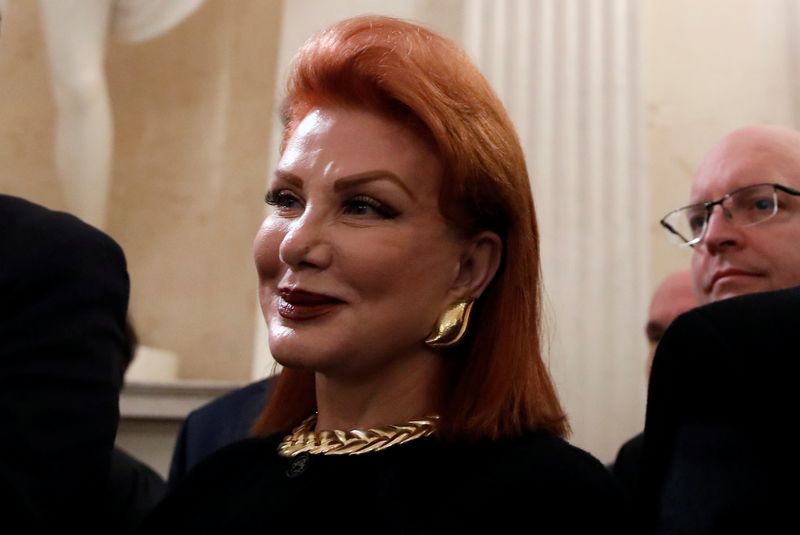By Justyna Pawlak and Joanna Plucinska
WARSAW (Reuters) - The U.S. ambassador to Poland said the European Union's criticism of Poland's adherence to democracy is "overblown", as Warsaw faces cuts to EU budget funds over its judiciary reforms.
Since coming to power in 2015, Poland's ruling Law and Justice (PiS) party has faced criticism from the EU over its overhaul of its judiciary system, with Brussels accusing Poland of violating EU laws.
As its relationship with the EU has faltered, PiS has focused on building strong ties with the United States, especially since President Donald Trump came to power in 2016.
"If you're asking me...do I think that a lot of the attacks on Poland about democratic values is overblown, my answer is yes, I do," U.S. ambassador to Poland Georgette Mosbacher told Reuters in an interview.
The EU is struggling to respond to what many in western Europe see as creeping authoritarianism in the eastern wing of the bloc, especially Poland, Hungary and Romania.
In an election on Sunday, Polish President Andrzej Duda, a PiS ally, won a second term in office, reinforcing the government's mandate to pursue reforms of the judiciary and media.
Mosbacher said the EU has been reluctant to acknowledge how much progress Poland has made, particularly when it comes to economic growth, since becoming a democracy after the fall of communism.
"It's still seen as the adolescent in the EU and it isn't anymore...I don't think France and Germany... (are) comfortable with that yet," she said.
A mechanism that would freeze out countries that fail to live up to democratic standards is up for discussion at an EU summit that began on Friday.
Hungarian Prime Minister Viktor Orban has threatened to veto a massive EU stimulus plan over his objections to the mechanism, with talks continuing on Saturday.
The European Commission, the EU's executive arm, has also signaled to Polish regional authorities that it may curb EU aid to areas that discriminate on the basis of sexual orientation, after many towns passed motions against the promotion of what they called LGBT "ideology".
Mosbacher called out the ruling party for its handling of LGBT issues in Poland's presidential campaign, after Duda said during his campaign that LGBT "ideology" was worse than communism.
"I think there were homophobic undertones," Mosbacher said of the campaign. "Do I like it? No. And I'm pretty vocal on that publicly."
She added that an agreement in June 2019 between Duda and Trump to bring 1,000 U.S. troops to Poland would be finalized "within weeks, not months."

Reuters reported last month that after a year of technical negotiations, the deal was crumbling amid disputes over funding and troop placement, which Mosbacher denied at the time.
